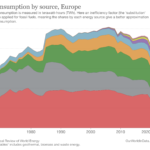JOHANNES EBER
This article was originally written for the “Good morning Europe” blog (www.goodmorningeurope.substack.com) by Johannes Eber. We were given permission to publish this article on the European Liberals for Reform blog.

Bulgaria has the world’s highest Covid-19 mortality rate. Bulgaria has the EU’s lowest vaccination rate (fewer than a quarter of all Bulgarians are fully vaccinated). Bulgaria is the EU’s poorest country (45 per cent below the EU average) and Europe’s 6th poorest country (only the following countries in Europe are economically worse off: Bosnia and Herzegovina, Albania, Macedonia, Serbia, Montenegro).
But Bulgaria has had hope again since Mid November. And this hope has a name: Kiril Petkov.
Together with his friend and caretaker finance minister Asen Vasilev, Petkov had founded the centrist party We Continue the Change (PP). In its first electoral outing, PP received just over a quarter of the votes in pole position to form the next government “and break a political stalemate in the EU’s poorest country,” as the Financial Times put it.
The stalemate so far: The opposition had twice beaten corruption-tainted centre-right premier Boyko Borisov’s GERB party this year but could not manage to form a coalition.
This is why PP was founded. To give a new nucleus around which to organise the opposition.
The election success shows that Kiril Petkov was right.
But the upcoming challenges are enormous. First of all Petkov and his PP have to form a government with a coalition majority. Together with
- the populist There is Such a People (ITN) party
- the liberal Democratic Bulgaria and
- the Socialists
the parties would command more than 130 seats in the 240-seat legislature.
All three parties have their problems. The ITN party leader Slavi Trifonov, a pop-folk singer, shuns political dealmaking. The Socialists have their roots in the Soviet era. The leader of Democratic Bulgaria just resigned after support for his party halved to 6 per cent in the latest election.
There are some indications that the parties will pull themselves together. Because the people want so. Parvan Simeonov, executive director of research group Gallup International Sofia, told the Financial Times:
“Bulgarians did not revert to GERB, instead they wanted the change to continue. More and more, what they want is just a stable government.”
The main challenges for the upcoming government: corruption, Covid, energy crisis.
Petkov promised to address all three points. He had already begun to make a name for himself with a tough stance against corruption in the interim administration formed after inconclusive elections in July. He wants to increase the vaccination rate emphatically (Petkov: “We cannot close Bulgaria again“). And he explained that the current energy problems should be eased via new sources such as gas from Azerbaijan and greater use of power sources like hydroelectric plants.
Expectations are high. Bulgaria’s starting position is so modest that chances are high that Petkov will move the country forward substantially.
Author Profile

-
Founder of the "Good morning Europe blog" and Pixel economist
Guest author for European Liberals for Reform
Johannes' articles are originally written for the “Good morning Europe” blog (www.goodmorningeurope.org) and the Pixel economist (https://thepixeleconomist.substack.com).
We were given permission to publish his articles on the European Liberals for Reform blog.
Latest entries
Post Disclaimer
The opinions expressed by the author of this post do not necessarily represent the opinions and policies of ELfR.




